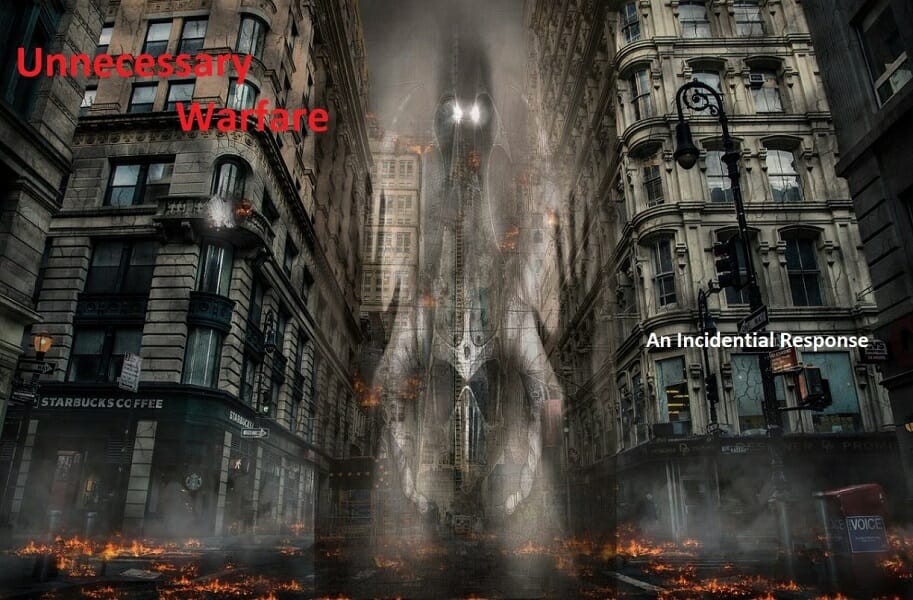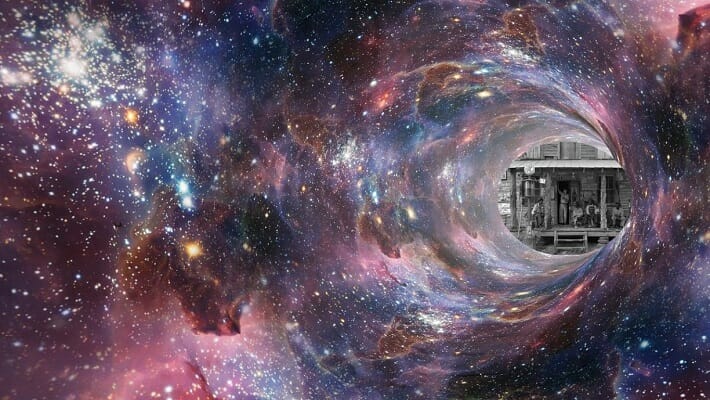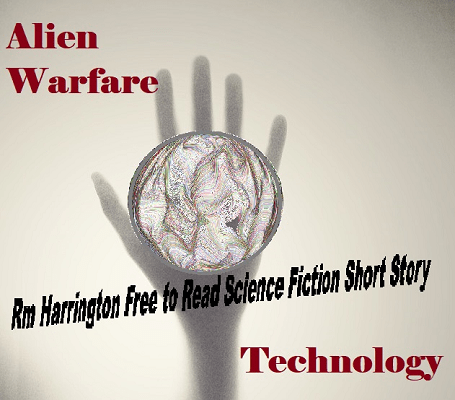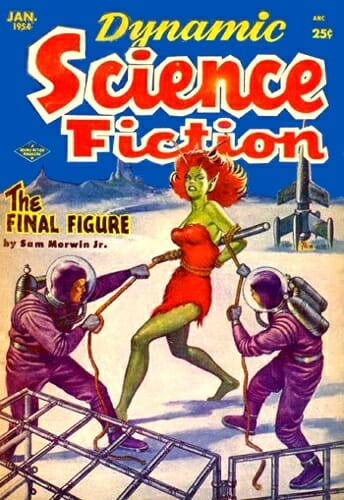Writing Science Fiction? 11 Things You Need To Know About Sci Fi
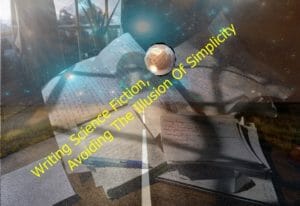 Writing Science Fiction – An Illusion of Simplicity
Writing Science Fiction – An Illusion of Simplicity
Too many readers take writing science fiction for granted. When done correctly, sci-fi stories excel so much so that readers never even notice how effectively the tale lays out a realistic but fiction scientific concept. One the other hand, new authors then to also take the process for granted. They conceive an idea and then dig into the writing without considering the the depth of realism that must be maintained if their words are to actually birth a new sci-fi creation. They craft a tale that breaks a mold, and then proceeds to ignore the practical aspects of the associated science. Details get lost amid the action. Soon a nice work of science fiction writing rams head-on into the illusion of simplicity. When this happens, readers or viewers turn away in disgust, disappointed by the lack of depth provided by the author of a promising science fiction idea.
This craft, my friend, this gentry of story telling is perhaps the most complex of all writing formats. As a writer of science fiction, you must craft and share an astonishing tale without breaking your readers suspension of disbelief. Not an easy thing to do. After all, once you present the sci-fi concept that drives your story, you must then do research so as to remain within the bounds of the presented concept. Unless that character with the Midas Touch operates within reasonable boundaries of the applied and extended scientific idea, he or she will disappoint your readers.
Herein Are 11 Tips Critical To Remember When Writing Science Fiction
1. Settings Need Not Always Be Astonishing, But It Helps
Writing science fiction stories often requires an author to place fictional characters into an amazing setting and then confronts those characters with a unique aspect of fictionalized science. Many times the ideas involve strange and unique fictional locations. But that need not be the focus. Although the staples of this genre include outer space, distant planets, under the ocean and just about anywhere you have ever imagined existed, the the story may just as well staged in the mundane of modern earth or historical earth. The key to making it sci-fi: Something takes place such that the mundane suddenly becomes astonishing.
2. Allegory
Sometimes the tales evoke sci-fi allegories. Even with faraway lands, science fiction stories often represent historical or present happenings within our world. This powerful theme recurs throughout written science fiction. Face it: Writing science fiction tends to let authors comment on the here and now, but in a rather sneaky manner.
3. Other than Human Characters
Aliens. Everyone likes to imagine what an alien could be like. What would they eat? How would they communicate? What are the many different forms of communication available for use when writing science fiction? Sometimes science fiction authors skip such details in favor of a broader scope store-line wherein modes of standardized communication are accepted as a given without need of elaboration. However, some authors take great joy throwing human characters dead center of an alien communications issue. But it’s not just about aliens. We routinely inject fantasy characters such as orcs, trolls, hobbits and more into a sci-fi theme. Furthermore, longtime readers of science fiction have failed to encounter stories that include supernatural animals, spirits and even giant ants. The field of other than human characters is as limitless as the mind’s eye. And that, my friend, is one of the major draws of sci-fi story telling.
[amazon_link asins=’1599631407,158297134X,B078T3V844′ template=’ProductGrid’ store=’rmharrington-20′ marketplace=’US’ link_id=’78b335ed-2df8-11e8-9907-5bb1208192e2′]
4. Traveling Through Time
It seems that those who write science fiction have a great passion for stories wherein characters jump back and forth in time, again and again. Sometimes characters actually travel back and forth in time (using a machine or prop), but time travel also refers to the fact that much of science fiction is set in the future. The future can be bent and willed to what is needed for a story. Many of the greatest science fiction stories every penned have sent readers hurtling towards the future.
5. Technology
Science fiction is where it all starts. Inventions start here before any engineer ever thinks it is possible. Spaceships and Nano machines oh my! Again and again sci-fi technology has proven to be a catalysts for invention. Thus, herein is a center piece of a good science fiction story.
6. Writing Science Fiction – The Journey Is The Adventure
At it’s core, all fictional story telling is about adventure, even it that adventure sets focus on the a journey through love. Is it then any wonder that The Journey is central to fictional literature? But sci-fi tends to take journeys that extend the limits of human imagination. Never permit your story to be a daily drudgery story. No dog walking here. Unless, of course, there is something astonishing about this particular dog, or owner or setting that makes dog walking a journey of exciting “what may come” of life!
 7. Dystopia
7. Dystopia
Utopia, people are happy. Dystopia, people are very unhappy. That is the nutshell version, cliff notes on steroids.
A dystopia is a perfect setting for science fiction. It can be anything we need it to be. From the collapse of world governments to aliens enslaving worlds. Dystopia is generally the end of the world for characters in the story. It is a wild and exciting ride for the rest of us. It’s about a world on fire and no way to stop the destruction. Think Mad Max.
8. Age of Reason
We’re not talking about age 18, 21 or even 50. We’re referring to the age—beginning in the 18th century in Europe—when there was an emphasis on the rational understanding of the world and exploration thereof. During this period all of those superstitious beliefs of the Middle Ages were dumped out the window. Does that mean that science fiction writers ignore the superstitions of the Middle Ages? Not if there is a great sci-fi idea hiding in the shadows.
Enjoying the read of Writing Science Fiction? Share with your friends. Thanks
9. Advances in Science and Technology
Beginning in the 16th century with the Scientific Revolution in Europe, big leaps were made in scientific knowledge. Technology also developed in leaps and bounds, especially in the 19th century. These advances in science and technology laid the groundwork for the development of early Science Fiction. If you think the possibilities are used up, writing science fiction may not be up your alley. Science fiction stories need not always involve modern advances in science and technology. Take a peek at the past and consider why might have happened had a 16th century inventor uncovered the science behind robotic creations.
10. Science Fiction Magazines
Sci-fi magazines, which were first published in the first half of the 20th century, played a big part in the development of the genre. Some of the most famous science fiction works – like the tales associated with the Isaac Asimov’s Foundation – were first published in sci-fi magazines. These magazines brought sci-fi to the masses and helped popularize the genre. Many of them are still here today, still taking unsolicited manuscripts and still presenting fresh thoughts for aggressive sci-fi writers.
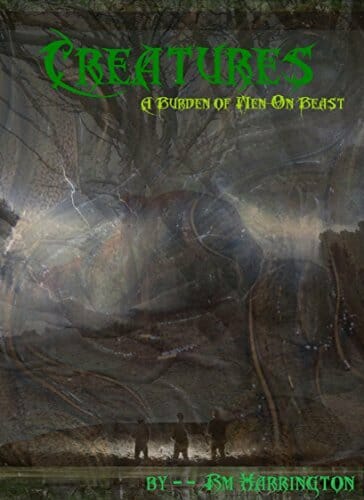
11. Weapons
New and astonishing weapons often drive the core of science fiction story telling. Even historical science fiction tends to be weapon heavy. Our fans take just as much pleasure from a western-focused science fiction wherein the characters fumble with some form of exotic pistol as they do with stories wherein everyone sports a laser cannon. Even if the weapons are not in your face there is always something that gives the hero his edge. Maybe edge weapon is the brain and an ability to outsmart foes. Or perhaps your lead character has a traveling companion who serves the weapon role. Just remember to think outside the box, but only when it furthers the story. Weapons, like horses and dogs, are mere props until they take on a critical role in the story.
Writing Science Fiction – Look Beyond The Themes
The themes and concepts listed above are but primers to a science fiction author. Every concept and every idea has potential. As a writer of science fiction, your job requires an ability to see beyond the mundane, to make entertainment, awe and wonder out of something common pushed a bit or a lot beyond the themes.
The imagination of a science fiction writer is limited only by a narrow mind.

